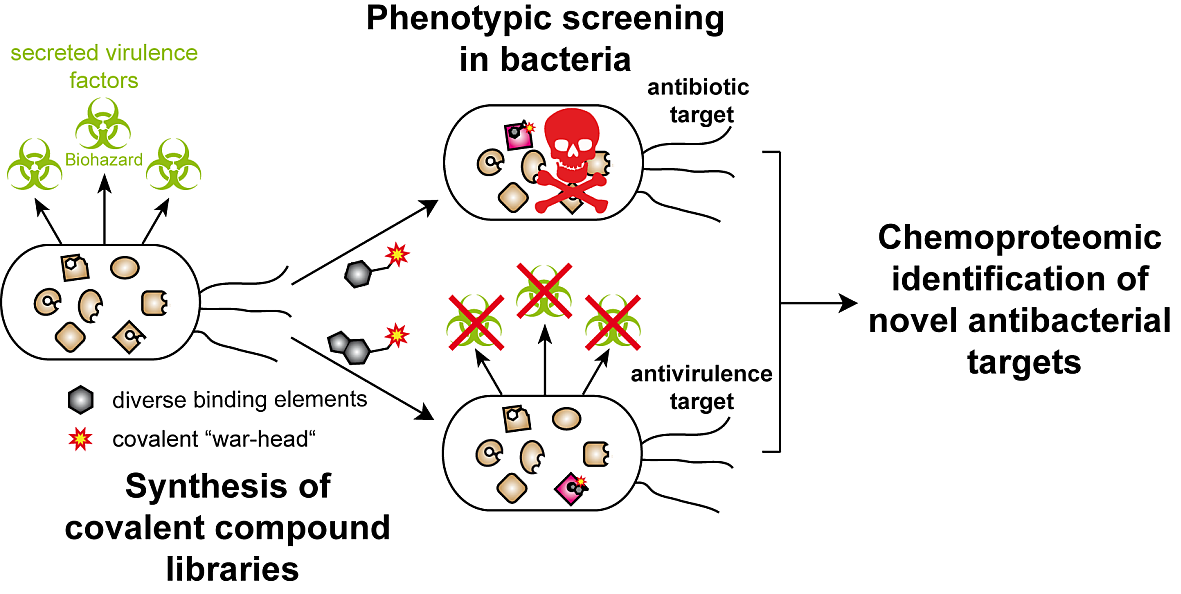The Hacker Research Group

The widespread development of bacterial resistance against many different antibiotics is a major challenge to human health. Our group works on the design of covalent compounds that can be used to address this problem by identifying new cellular targets for the development of antibacterials with novel modes of action.
We are working on the design and synthesis of new classes of covalent inhibitors. In this context, we are using different chemical war-heads, like the well-established acrylamides and chloroacetamides as cysteine-directed electrophiles, but also develop novel war-heads directed towards other amino acids like lysine. Additionally, we are designing chemical scaffolds that can be used to synthesize diverse libraries of these compounds in a straight-forward manner.
We are performing phenotypic screens in bacteria to identify compounds with antibiotic or antivirulence activity. Here, we are carrying out Minimum Inhibitory Concentration (MIC) experiments in various Gram-positive and Gram-negative bacteria to identify antibiotic compounds. In addition, we are also screening for compounds that are not affecting bacterial viability, but disarm the bacterial arsenal of virulence factors.
Finally, we are using and developing modern chemoproteomics methods to identify the cellular targets of bioactive covalent compounds. In this way, we can both identify new antibacterial compounds and so far unexplored antibacterial targets in a straightforward manner.